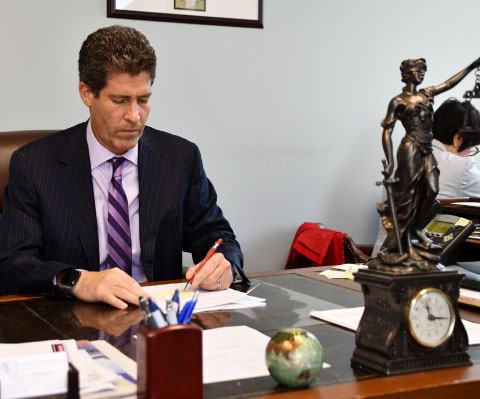Can a Car Accident Make Scoliosis Worse?
June 23, 2022

A car accident could seriously exacerbate a pre-existing health condition. This is true for medical conditions involving the back and spine, which are highly vulnerable. Scoliosis is one of these conditions, affecting an estimated 6 to 9 million people in the United States. People with scoliosis have an irregular curvature of the spine and may have chronic back pain and other symptoms that may worsen after trauma to the body, like a car accident.
Scoliosis can occur spontaneously with no known cause, develop from an embryological malformation of one or multiple vertebrae, or happen due to a muscular or neurological disease. While scoliosis can be diagnosed in infancy or early childhood, it primarily develops between 10 and 15 years old.
Aggravation of a Previous Health Condition
For some people living with scoliosis, symptoms are relatively minor. They can go about their daily activities without chronic pain or impairment under the supervision of their health care provider. However, a car accident can further aggravate their condition and cause symptoms to worsen to the point it impacts their quality of life.
In a collision, the force of impact when two vehicles collide can cause broken vertebrae, muscle damage, joint damage, herniated discs, and other spinal injuries. That can be quite serious for someone whose spine health is already compromised by scoliosis.
Auto insurance companies must consider the person “as they are.” If they have a pre-existing condition unaffected by an auto accident, they are likely not entitled to compensation related to that condition. However, if the crash exacerbates their condition, they may be entitled to damages according to the degree to which their condition worsened.
It is not always easy for someone with a pre-existing medical issue like scoliosis to prove that an accident worsened their condition. That means recovering the costs of hospitalization, surgery, medication, and physical therapy is more challenging. The at-fault driver’s insurance company and legal team are likely to argue the injured party’s pain and symptoms were not caused by the accident. Their goal is to pay out as little as possible.
As with any personal injury claim, substantial evidence is crucial for a successful outcome. To prove an accident directly made your condition worse, you must provide evidence to show:
- Your condition, symptoms, treatment needs, and prognosis before the accident.
- Your condition, symptoms, treatment needs, and prognosis after the accident.
In these cases, a qualified, credible professional will provide their medical opinion about how the accident worsened the injured person’s symptoms and why they need more extensive care.
After any car accident, timely medical care should be your priority. Most importantly, you should protect your health and safety. A thorough medical evaluation, including an X-ray, MRI, and other imaging tests, is necessary to assess your condition.
Medical attention after a car accident is also critical to establish the best chance of filing an insurance or legal claim for symptoms that may develop in the future. Detailed medical records are the best way to prove that trauma from a car accident caused your existing scoliosis to worsen.
The longer you wait to see a doctor after a crash, the easier it will be for the other party to claim an accident had nothing to do with your health problems.
Philadelphia Car Accident Lawyer at Nerenberg Law Associates, P.C. Can Help You Prove an Accident Worsened Your Medical Condition
Scoliosis and other back conditions can be debilitating. If a recent car accident made your pain and symptoms worse, we can help. Our Philadelphia car accident lawyer at Nerenberg Law Associates, P.C. will carefully assess your situation and create a solid legal strategy to achieve the best possible outcome. Call us at 215-569-9100 or contact us online to schedule a free consultation. Located in Philadelphia, we serve clients throughout Pennsylvania and New Jersey.

